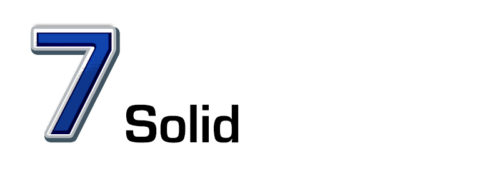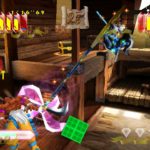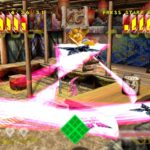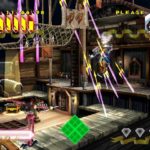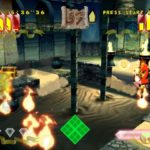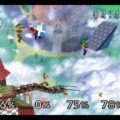Capcom were the undisputed master of the 2d fighting game. But with 3d they were years behind their contemporaries at Sega and Namco. There stabs at the genre were at times interesting, like Rival Schools. But the rest were mostly dreadful like Star Gladiator. I guess making a game with the idea being “it’s like Street Fighter but..” didn’t appeal to most players. It was when they threw out nearly all the rules that they had established that they finally made a splash. Power Stone was one of the jewels of the Dreamcast’s large launch lineup and a solid game all around.
Power Stone was an interesting title at its release. The arcade version came and went with little fanfare. But the Dreamcast port is where everyone took notice. Unlike the majority of Capcom’s own fighting games Power Stone ignores all the standard rules of the genre and is an all-out brawl. It is sort of like Super Smash Bros but in full 3d. A brawler like this was rare in the arcade; Midway’s Bio Freaks tried the same thing but, uh, the less said about that game the better. Capcom were able to realize the concept better, creating an original 3d fighter that only suffers from a lack of content.
The first thing you need to do is throw out all of your knowledge of fighting games. Aside from life bars, and the three round structure Power Stone has little in common with others in the genre. Every bout takes place in a closed off arena. There are items, treasure chests, and other environmental factors lying around to interact with as you seek to bludgeon your opponent to death. The controls are kept very simple; you can jump, have a punch or kick, and a grab attack. Forget special moves as they don’t exist. Hell you can’t even block. Instead you are left to use the environment to dodge attacks or hide behind objects. Navigating is incredibly easy as the camera always keeps both characters in view at all times. The characters also dynamically adjust to their surroundings.
With that in mind it is easier to focus on combat. Almost every object can be picked up and tossed and the game has a massive roster of guns, bazookas, and swords to play around with. Each battleground is about perfect in size. They are large enough you can gain some distance but small enough to force frequent confrontation. That confrontation is due to the game’s namesake. The power stones, once collected, transform you into a super hero alter ego. In this form your standard attacks are boosted for a while. But more importantly you have two power fusion attacks. These attacks are insanely overpowered but also differ per character. Using one also completely exhausts the power meter, sending the stones back into play.
The power of the stones makes every match devolve into a rush to collect all three. If there is a criticism you can lobby at the game it’s that it might be too simple. I get that the lack of special moves puts everyone on equal footing. But Power Stone could have used some depth. Especially as jump kicks are the most effective, overpowered attack. Watching a match devolve into who can land a jump kick first gets old fast. It is at least fun but not conducive to long play sessions.
The cast of characters is unique for a variety of reasons. The power stones can drastically alter a character, shoring up their weaknesses with powerful attacks. Beefier characters like Gunrock and Galuda have a few extra options due to their strength like using telephone pools as a bat. Jack is one of the strangest characters in a fighting game as he glides and slides around the arena. Fast but weak characters like Ayame and Falcon have massively overpowered fusion attacks. Mastering power fusion attacks can require skill; Wang Tang ‘s L2 can be easily wasted if you don’t know its range. There are also imbalances in the cast. Gunrock is both strong and agile and has a near unblockable power fusion attack. There is decent variety among the cast, the only thing is you’ll wish it were larger.
Even though Power Stone is incredibly fun that entertainment is still limited. The life blood of a fighting game is its characters and Power Stone is great in that regard. But the roster is incredibly small compared to other Dreamcast fighting games like Marvel vs Capcom and the King of Fighters ’98. Once you’ve unlocked the three bosses there is little else. You can earn some new items and options to tweak multiplayer but that still doesn’t make up for the lack of content. It’s especially noticeable when Soul Calibur was also available at launch and redefined expectations regarding fighting games. What is there is solid but bare bones.
In Closing
Power Stone succeeds at providing something new to the fighting game genre. But it didn’t survive as a long lasting experience. You’ll enjoy Power Stone if you have a large group of friends. But its shelf life is short compared to the titans of the genre. Enjoy it while it lasts because that won’t be long.
